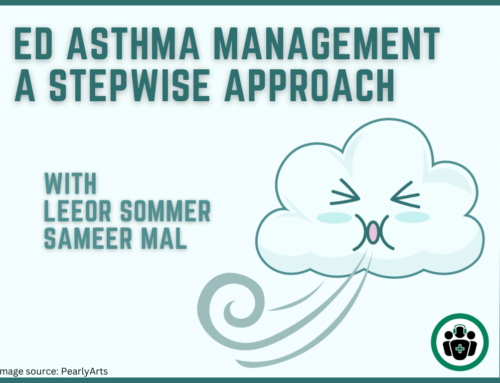“Self-interest is hostile to the common good, but enlightened self-interest is not. And this is the best key to the meaning of enlightenment.”—Allan Bloom
In my various roles over my career spanning more than four decades, I am often asked for career advice and about medical leadership in general. Requests come from everyone ranging from experienced colleagues to idealistic pre-med students. I always enjoy these conversations, in part because they have helped crystallize lessons I have learned along the way. I thought I would share a few crucial ones in this blog entry.
- Be a good doctor
First and foremost, be a good doctor (or nurse, respiratory therapist, paramedic, etc.). This may sound trite, but it is not. There are many reasons to ensure you remain up to date and in your discipline. For example:
- Your colleagues will know if you are a competent clinician and will respect you more if they trust you in that role. This is one area where physician leaders have a major advantage over nursing leaders, as they usually are not required to give up clinical practice when they take on most medical leadership positions (I expand on this point later in this post).
- When you continue to practise, those who report to you know you are also affected directly by the decisions you make as a leader. You also experience first-hand any challenges and gaps in your practice environment as well as opportunities for improvement.
- Physician leaders who maintain their skills also maintain their career options and freedom as leaders since they are not financially dependent on their leadership positions.
- Perhaps most importantly, direct patient care keeps you grounded in a shared mission: to enhance the care our groups and institutions provide.
- Get some real-world experience
My leadership training has all come from practical experience. I do not have a master’s degree or so much as a leadership certificate from a weekend program. I do not say that with pride; my career just happened to grow organically and without a long-term plan or vision. Today there is a greater emphasis on credentials. While leadership training and advanced degrees can provide important knowledge and help create useful networks, there is no substitute for doing—for being involved in solving real-world problems and engaging in discussion and compromise with other stakeholders. Regardless of how many credentials you have accumulated, try volunteering for a hospital committee or getting involved in a professional association. Put your hand up for any opportunity to get a seat at the table (even a virtual table, these days) and then watch and listen carefully. How does the meeting chair handle themselves and the agenda? How do others respond to them? Are they effective? Why or why not?
- Understand “enlightened self-interest”
The term enlightened self-interest is usually attributed to 19th century political philosopher Alexis de Tocqueville.[1,2] It can be compared to giving greater consideration to long-term benefits than to short-term benefits. In political and administrative arenas, I have found most instinctive positions are tied to narrow considerations of short-term interests, and I have seen leaders appeal to staff to be more altruistic to overcome these instincts. I believe a much more successful leadership strategy is to try to get everyone to reach a common view of their enlightened self-interest on a subject.
Common situations where enlightened self-interest could be applied in the ED might include tussles over consult policies or hospital space considerations. In some EDs there are firm policies that dictate which disciplines manage problems, that prohibit refusing a consult, and that set acceptable consult response times; however, I find overly rigid rules counterproductive to achieving the culture we desire. Yet patients should not wait many hours for consults, and I want care to be patient centered and to have consulting staff view ED physicians as partners in care. Sometimes that means having a longer conversation that is patient specific—not to duck a consult or to shirk a responsibility, certainly, but to do what is best for all involved at that moment. Taking a few more minutes to manage the situation, despite being busy, might help me personally and our department overall build and maintain good relationships that will benefit us later.
- Understand the operational/medical leadership dyad
Operational leads are usually nurses, are always hospital employees, and rarely provide direct patient care. In contrast, physicians who work as medical leads continue to practise and thus may be employed as leaders but also have self-employment income. Operational leads report through a program director to a vice-president of nursing or the chief operating officer, while medical leads report to the medical advisory committee and the vice-president of medical services. To be a successful leader in this structure, understanding the differences between the two roles is essential.
The relationship between medical and operational leads is analogous to the clinical relationship between doctors and nurses. In general, and especially in the ED, physicians work somewhat erratically to arrive at a diagnosis and a plan in the most efficient way possible (what in math we call the “elegant solution”—aspiring to get the right answer but also to reach it in the fewest steps possible). We must think outside the box and at times make risk-based decisions to save time. Nurses, however, are expected to be more algorithmic, to follow policy, and to stick with protocol. Thus nurses must be diligent in always checking orders, confirming patient identification prior to interventions, charting, etc. While occasionally there can be frustration between a doctor and nurse over their differing approaches and their expectations of each other, in a calm moment most of us would be grateful for the role the other plays so the team collectively delivers the safest and best care to our patients.
Physician leads tend to be valued for their vision, for their knowledge of new developments in their field, and for their long-term or strategic thinking. They generally also feel comfortable speaking freely.
Operational leads focus on obligations under collective agreements, protocols for equipment safety and maintenance, budgetary restrictions, and reporting. They also usually have a better understanding of institutional culture and interdepartmental relations with key groups such as admitting, pharmacy, and human resources. As employees they often are less able to speak freely than physicians.
At its worst, I have seen situations where the two groups each feel the other is actively trying to undermine their efforts. This results in an uncomfortable practice environment and can lead to decision-making paralysis. Through a lack of understanding, they end up working independently. But when they work constructively as allies, magic can happen!
For the past 15 or so years I have been lucky to have a trusted collaborator and friend as my nursing/operational lead counterpart. This positive relationship has made me wonder how much of the frustrations I had at the start of my career came from my own narrow understanding of hospital operations at the time. Hospitals need to do more to educate leaders about the differences in roles and expectations I have outlined here. They should also support constructive collaboration by providing formal training in this area; by including both groups of leaders in key meetings and communications; and by giving each some input on leadership searches and decisions, performance reviews, and related tasks.
I have summarized here some important learnings that have informed my leadership approach. While perhaps superficially banal, the challenge is in the sincere execution of these principles on a day-to-day basis. Consider the health care leaders you personally respect and compare what you know of their behaviour based on these 4 questions (I suspect you will say “yes” to each one):
- Are they a good clinician?
- Do they have substantial real-world experience?
- Do they take a long-term view of benefits and risks?
- Do they get along with their counterparts in the leadership dyad?
Currently we face huge challenges in emergency services and in health care internationally. We live in a time of social and political polarization, disillusionment with our institutions, distrust of expert information, and an epidemic of staff burnout. How do we cope and lead in these parlous times? In my next blog I will explore my approach to the ethical and moral roles leaders should occupy in the face of so many challenges.
References
- Enlightened self-interest. San Francisco, CA: Wikimedia Foundation Inc; 2024. Available from: https://en.wikipedia.org/wiki/Enlightened_self-interest. Accessed 2024 Feb 24.
- Alexis de Tocqueville. San Francisco, CA: Wikimedia Foundation Inc; 2024. Available from: https://en.wikipedia.org/wiki/Alexis_de_Tocqueville. Accessed 2024 Feb 24.





Leave A Comment